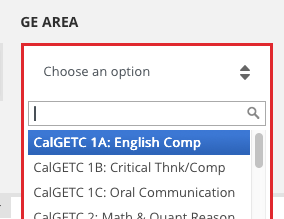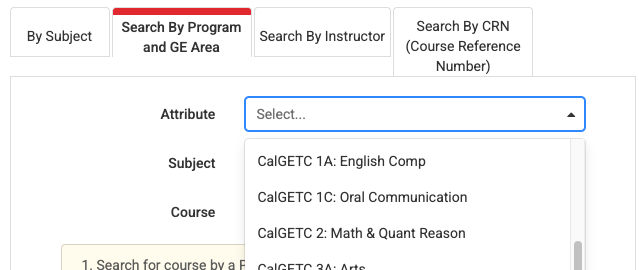The Cal-GETC pattern is intended for students whose educational goal is achievement of an Associate Degree for Transfer (AD-T).
- New students will follow the Cal-GETC pattern if they want to transfer to a four-year institution (UC or CSU) with an Associate Degree for Transfer (AD-T). For new students transferring without an AD-T, following the Cal-GETC pattern is a great way to complete the lower-division transfer requirements to a UC, CSU, or AICCU school*.
- Continuing students who have maintained continuous enrollment may adhere to their established catalog rights and are not required to follow Cal-GETC. Continuing students do have the option of changing their Catalog Rights year and following the Cal-GETC pattern.
- Returning students who have lost their catalog rights need to follow the Cal-GETC pattern if they want to transfer to a four-year institution (UC or CSU) with an AD-T. Make an appointment with a counselor to discuss the course requirements for your major.
* For most students planning to transfer, Cal-GETC is the best option. However, for non-AD-T seeking students in some high-unit majors, such as STEM majors, Cal-GETC may not be the best option. Students should discuss their individual situations with a counselor to see if Cal-GETC is the right choice.
New students seeking a local AA or AS degree are also welcome to use the Cal-GETC pattern to fulfill local CCSF GE requirements.


